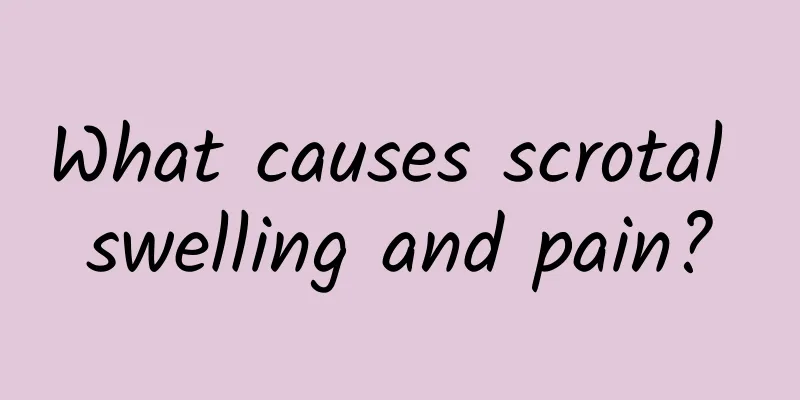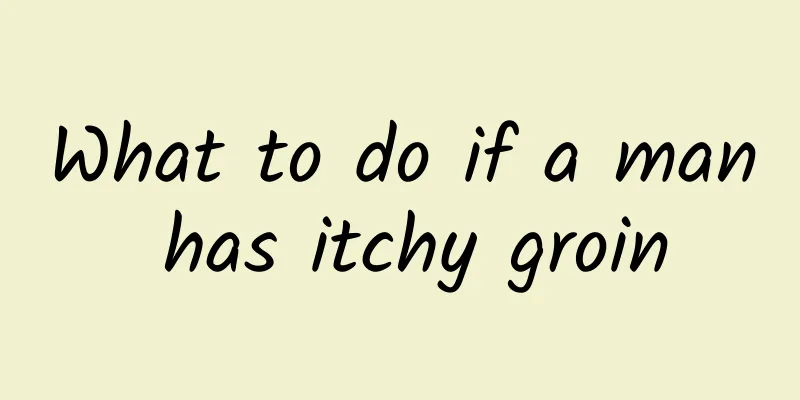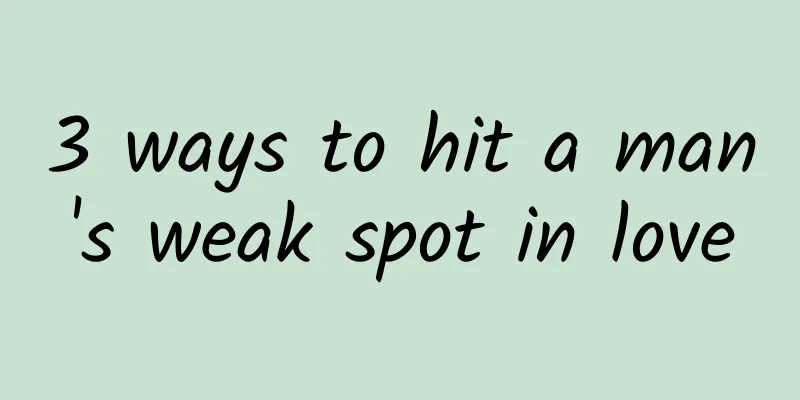What causes scrotal swelling and pain?

|
Scrotal bloating is one of the most common diseases among many men, and the incidence rate is often very high. If not treated in time, it will seriously affect the sexual life between couples, and will also have a certain impact on fertility. Moreover, this situation always makes male friends feel uneasy and will have a very big impact on their lives, so its treatment is also very important. So what is scrotal bloating? Let's learn about it together. What causes scrotal swelling and pain? Orchitis Orchitis is a common cause of testicular pain. There are many causes of orchitis, such as patients with mumps may suffer from orchitis, testicular pain and swelling; gonorrhea; gonorrhea is the most common sexually transmitted disease, and in severe cases it can cause orchitis, testicular pain and swelling; chronic prostatitis can also cause testicular pain, which manifests as unilateral pain, mostly dull pain or pulling pain, which is persistent. Microscopic examination of prostatic fluid can reveal a large number of white blood cells. Most patients are young and strong, and it is rare in the elderly. Testicular torsion Testicular torsion is one of the common acute diseases in the scrotum. It can occur in newborns to 70-year-olds, and 65% occur between 12 and 19 years old. Generally, there is vigorous activity a few hours before the onset of the disease, or the testicles have been subjected to external force. Severe testicular pain occurs suddenly during sleep or quiet time. This is the first symptom of this disease and one of its main diagnostic bases. Some patients are accompanied by nausea and vomiting, scrotal swelling, and obvious tenderness. For patients who suspect or cannot rule out testicular torsion, surgical exploration and reduction and fixation should be performed as soon as possible to save the testicles and protect spermatogenesis. It is generally believed that the testicular rescue rate can reach 80% for those who undergo testicular torsion within 6 hours, but only 20% for those who undergo treatment after 24 hours. Even if the testicle can be preserved, the function of the affected testicle is often damaged. Testicular injury The testicles are more mobile in the scrotum and are protected by a tough white membrane, so the chance of closure injury is relatively small. Testicular injuries are mostly related to violence, car accidents, etc. After injury, the testicles are severely painful, nausea, vomiting, and even fainting or shock. During physical examination, there are swollen testicles, unclear contours or scrotal congestion, and obvious tenderness. B-ultrasound and CT are not only helpful for the diagnosis of this disease, but also can clarify the location and range of testicular injury. The treatment principle of testicular injury is first sedation, analgesia, and anti-shock. Secondly, the degree of testicular injury is determined based on physical examination, B-ultrasound or CT findings and the measured testosterone, LH, and FSH values, so that different treatment measures can be taken. Minor injuries can be treated conservatively, and severe injuries should be treated with surgical exploration within 24 hours. For those with low sex hormone levels after testicular trauma, male hormone supplementation or allogeneic testicular transplantation can be used to maintain their male characteristics and improve their sexual function. Testicular ischemic pain Testicular ischemic pain is more common in the elderly. The pain is more severe, aggravated by activity, and relieved by rest. Prostatic fluid microscopy is normal. It is often caused by sclerosis of the testicular artery, which leads to stenosis of the artery. Testicular artery atherosclerosis is often a local manifestation of systemic vascular disease. It is usually unilateral and more common on the left side than on the right side. The main basis for diagnosis of this disease is: (1) age; (2) progressive aggravation of unilateral testicular pain; (3) color Doppler showing insufficient blood supply to the affected testis. There is no effective treatment method yet. Vasodilators, enteric aspirin and calcium channel blockers can be used. For patients with severe pain and who are ineffective with the above treatments, orchiectomy on the affected side can be considered. The above is an introduction to what causes scrotal swelling and pain. After understanding it, we know that such symptoms are generally caused by some inflammation or trauma, so male friends must pay close attention to it and go to a regular specialist hospital for treatment in time. Don't always be embarrassed to seek treatment because of face, as this will easily make the disease become serious. |
<<: What is the reason for the small red spots on the glans penis?
>>: Causes of congenital azoospermia
Recommend
What is the correct way to use the crunch wheel to train abdominal muscles?
The abdominal wheel is a kind of fitness equipmen...
The best way to treat kidney deficiency, five simple moves
Due to stress from work and life, cold food or st...
Reasons for acne on both sides of men's face
In daily life, we find that most women who have a...
Will epididymitis heal on its own without treatment?
For men, they should pay attention to the cleanli...
How to use compound lidocaine cream
The spiny seed lidocaine cream is used for surgic...
How to see men's sexual ability?
When some girls are looking for boyfriends, they ...
Which department should a man go to for sperm examination?
Every couple hopes to give birth to a smart baby,...
White granulation in the coronal groove of the glans penis
The white granulation in the coronal groove of th...
Does a ruptured testicle affect fertility?
A violent impact from external force can cause te...
What are the tips for men's facial oil control?
In the 21st century, both men and women pay much ...
Introduction to the health regimen for men in their forties
Many people do not know how to take care of their...
Zinc gluconate tablets for sperm
Everyone knows that fertility is not just a femal...
Bringing it home can turn a man into a "Saint Seiya"
Men are stronger than women, they have well-devel...
What to eat to promote testicular growth
For men, the development of testicles is very imp...
Six "don'ts" for men's health
NO.1 Don’t be stiff when you are hungry Do not de...









